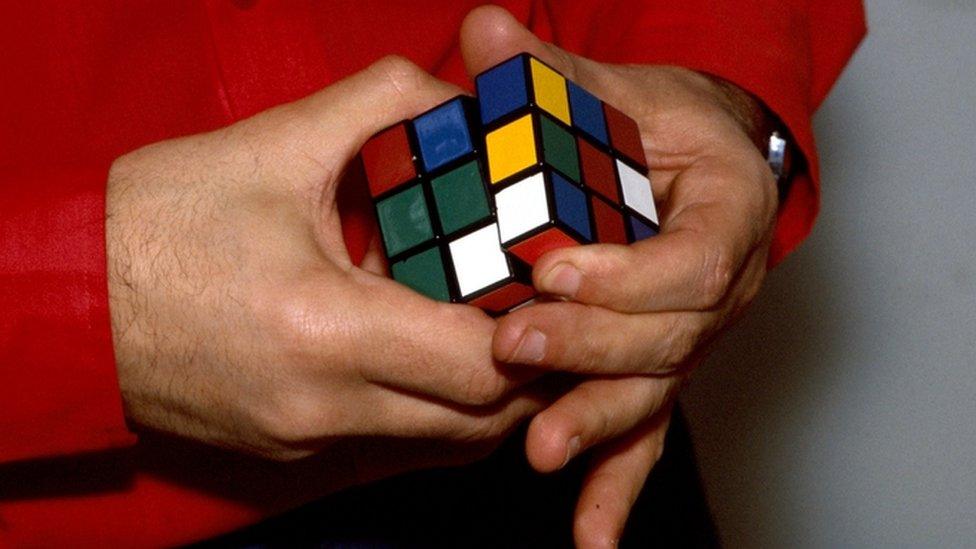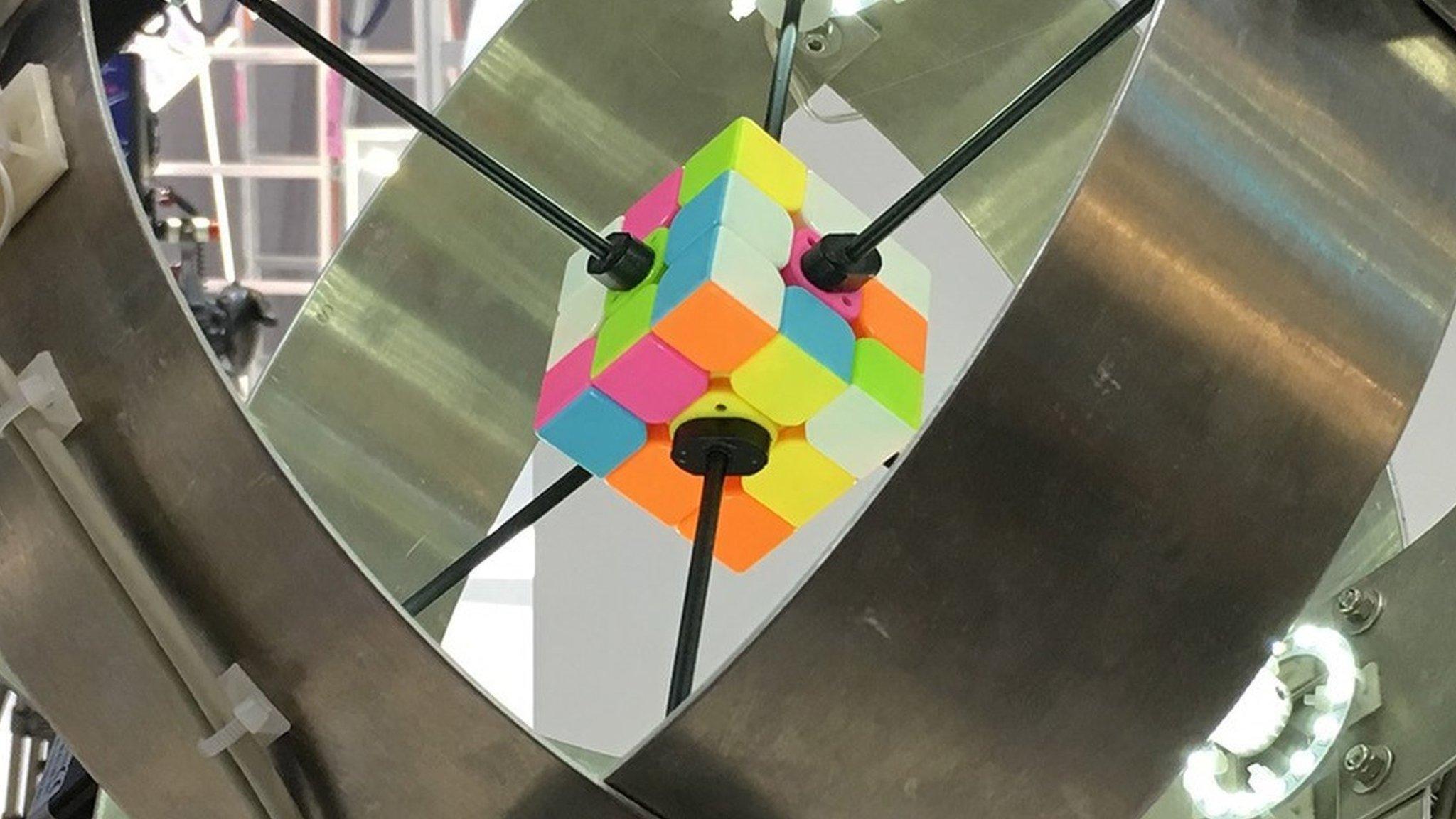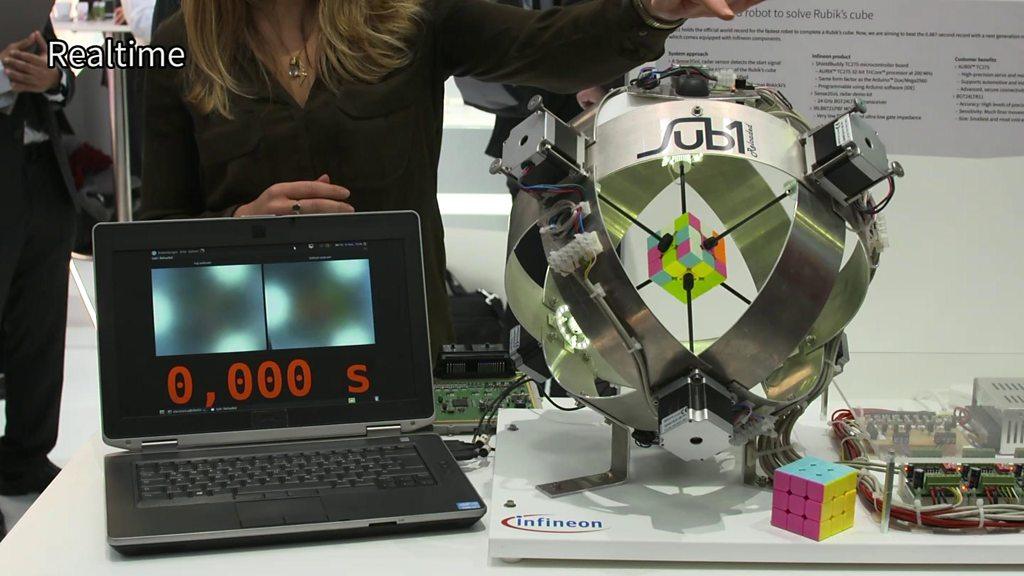Rubik's Cube shape not a trademark, rules top EU court
- Published

The shape of multicoloured three-dimensional puzzle Rubik's Cube is not a trademark, the European Court of Justice has ruled.
It means the shape of the cube alone is not enough to protect it from being copied.
UK company Seven Towns, which manages Rubik's Cube's intellectual property rights, registered its shape as a trademark in the 1990s.
But German firm Simba Toys challenged the trademark protection in 2006.
The European Court of Justice (ECJ) agreed that the cube's ability to rotate should be protected by a patent and not a trademark.
Patents protect inventions for a certain amount of time, while trademarks give intellectual property owners exclusive rights to their designs.
Simba Toys took its case to the Luxembourg-based European Union Court of Justice (ECJ) after the European Union Intellectual Property Office (EUIPO) and a lower EU court had dismissed its lawsuit.
The ECJ judges ruled: "In examining whether registration ought to be refused on the ground that shape involved a technical solution, EUIPO and the General Court should also have taken into account non-visible functional elements represented by that shape, such as its rotating capability."
Rubik's Cube, which was invented in 1974 by Hungarian architecture professor Erno Rubik, has enduring popularity and has sold more than 400 million cubes worldwide.
Seven Towns registered the Rubik's Cube as a three-dimensional EU trademark with the EUIPO in 1999.
As part of the Simba Toys challenge, in 2014 the European Union General Court decided the three-dimensional trademark was valid, external, and ordered Simba to pay costs.
Fun and games
Alex Brodie, a partner at Gowling WLG, said that the judgement was "no surprise" given the ECJ handed down a similar decision, external regarding Lego bricks in 2010.
She said: "The Rubik brand still stands but it doesn't have a monopoly on the shape of the cube puzzle under trade mark law.
"Others are now free to create such a puzzle - provided Rubik doesn't have other IP rights - but they cannot call it Rubik and they cannot copy the get up of Rubik - this decision is solely about the shape of the product."
"We wait to see whether the consumer market is waiting for an alternative cube puzzle and how this judgment will in fact affect the puzzle market," Ms Brodie said.
However, she added that there will probably be a greater impact on toy and games firms reviewing their three-dimensional trademark registrations.
- Published9 November 2016

- Published9 November 2016
